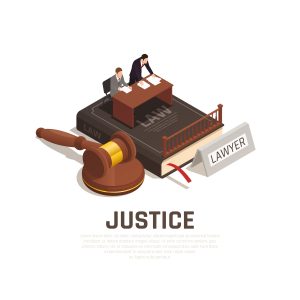
If you are trying to get disability benefits like Social Security Disability Insurance (SSDI) or Supplemental Security Income (SSI), you probably have heard of disability lawyers, but you might not know what a disability advocate is.
In short, a disability advocate is different from a Pittsburgh social security disability lawyer because the lawyer has a law degree while the advocate does not. Still, disability advocates must earn their certification to help claimants with disability benefits-related matters.
An Overview of Disability Lawyers
A disability lawyer must have an active law license and a law degree. They also must have a bachelor’s degree before attending law school, which is three years of intense education after four years of college. The law school graduate then must pass a bar exam, a multiday test, and go through a background check and state bar investigation before being granted a law license in that state.
To keep a law license active and in good standing, the attorney must complete the amount of continuing legal education a specific state requires for that year. Also, disability lawyers, like all lawyers, are bound by the professional rules of conduct set by the state or states in which they practice.
How Disability Lawyers Get Paid
You do not pay upfront legal fees to a disability lawyer. The disability attorney does not get paid until you are approved for disability benefits. At that point, the lawyer submits a payment request to the Social Security Administration (SSA).
The payment process involves the SSA approving the fee agreement between the lawyer and client and determining that the payment request is accurate for the work completed and fair under the SSA rules. The lawyer will typically receive 25% of the back pay the SSA awards to the client pursuant to 42 U.S.C. 406. Attorney’s fees can be capped.
What Disability Lawyers Can Do for SSDI or SSI Clients
The specific tasks that a disability lawyer performs on a given case will depend on the unique facts of that situation. Here are some of the ways that a disability lawyer can assist a client seeking SSDI or SSI benefits:
- We can examine your initial application for benefits. SSDI and SSI programs have different applications. You will need to apply for each program separately if you qualify for both.
- We can ensure the SSA has the correct information about your medical providers.
- We can represent you at a disability hearing before an Administrative Law Judge (ALJ). These meetings can take place by telephone, video conference, or in person.
- We can handle appeals if your disability application is denied or the SSA approves you for fewer benefits than you qualify to receive.
Also, our disability benefits attorneys can provide guidance and legal advice every step of the way. You do not have to go through this process alone. Most people have to file at least one level of appeal before the SSA awards them the benefits for which they are eligible.
Contact one of our area Social Security Disability lawyers today to learn more:
- Pittsburgh Social Security Disability Lawyer
- Erie Social Security Disability Lawyer
- Altoona Social Security Disability Lawyer
- Johnstown Social Security Disability Lawyer
- West Mifflin Social Security Disability Lawyer
- Plum Social Security Disability Lawyer
- New Castle Social Security Disability Lawyer
- Baldwin Social Security Disability Lawyer
- Allison Park Social Security Disability Lawyer
- Wilkinsburg Social Security Disability Lawyer
- Upper St. Clair Social Security Disability Lawyer
- Columbus Social Security Disability Lawyer
40+ years of experience from strong, knowledgeable, compassionate attorneys.
Start A Free EvaluationAn Overview of Disability Advocates
A disability advocate is not a practicing lawyer. The advocate might be a paralegal or have some legal training but does not have a law degree that would qualify them to be a licensed attorney. Because a disability advocate is not a licensed attorney, these individuals are not members of the state bar association or bound by the same rules of professional conduct.
A disability advocate can help a person complete an application for SSDI or SSI benefits. An advocate can charge a client for their services. Just as with a disability lawyer, though, a disability advocate’s request for payment must go through the SSA.
How Disability Advocates Get Paid
The SSA will determine if the advocate has a binding fee agreement with the client. Advocates are allowed to charge the same for their services as disability lawyers. Fees for representing an applicant for Social Security Disability benefits must fall within the limits the SSA sets.
If the client is approved for disability benefits, the disability advocate then submits a request for payment of the fees. The SSA must determine that the fee request is fair and accurate to approve the payment. The typical fee for a disability advocate in a Social Security Disability case is 25% of the back pay the claimant gets awarded, up to the maximum approved by the SSA.
Who Can Serve as a Disability Advocate on SSDI or SSI Claims?
One cannot simply hang out a shingle and work as a disability advocate assisting SSDI or SSI applicants if they want to have their fee withheld by the SSA. Disability advocates must pass a test and earn a certification in order to have their fee withheld. If they do not care if their fee is withheld, there is no requirement for them to take the test.
We know you’re hurting. We can help. Free case evaluations, home and hospital visits.
Contact Us Now For HelpHow the SSA Determines Eligibility for SSDI or SSI Benefits
To determine eligibility for Social Security Disability Insurance (SSDI) or Supplemental Security Income (SSI) benefits, the SSA follows a comprehensive evaluation process. Whether you choose to work with a disability lawyer or a disability advocate, or handle your disability benefits application on your own, the SSA’s method remains the same. Central to this process is the Listing of Impairments, also known as the Social Security Administration Blue Book. This extensive document outlines various medical conditions and the specific criteria each must meet to be considered disabling.
The Disability Determination Services (DDS) representative assesses your application in several steps. Initially, they will examine your work history to determine if you have earned enough work credits for SSDI or meet the income requirements for SSI. Following this, they evaluate your medical records to confirm the presence and severity of your condition. Your condition must significantly limit your ability to perform basic work activities for at least 12 consecutive months or be expected to result in death.
If your condition matches one of the listings in the Blue Book, you may be automatically considered disabled. However, if it does not, the DDS representative will consider your residual functional capacity (RFC), which measures your ability to perform any type of work given your condition. They will examine your ability to do your previous work or adjust to other work considering your age, education, and work experience.
Additionally, the DDS representative may require you to undergo a consultative examination (CE) if they need more information to make a decision. This examination is conducted by a doctor chosen by the SSA and is meant to provide further insight into the limitations imposed by your condition. The SSA’s thorough evaluation ensures that only those who are truly unable to work due to conditions that are disabling receive benefits.
You need an attorney with the experience and dedication to give your case the care it deserves.
Start A Free EvaluationCall Berger and Green Today for Social Security Disability Representation
Berger and Green has disability lawyers who can represent you in your SSDI or SSI case. If you still have questions about the differences between a disability advocate and a disability lawyer, we can answer them during a free consultation about your SSDI or SSI benefits claim.










